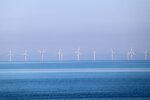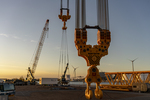Optimism about pace of energy transitions declining, reveals World Energy Council’s latest ‘world energy pulse’
The latest World Energy Pulse shows that leaders’ optimism about the pace of energy transition has decreased rapidly, with 27% more leaders indicating that they believe the process will slow compared to April when the first Pulse was conducted (44% vs 35%). The shift comes as energy security increasingly reframes affordable climate security actions. At the same time, 18% more respondents are seeing greater fragmentation in global energy policy approaches (43% compared to 36%), as new and cascading crises affect energy systems and consumers worldwide.
The latest World Energy Pulse also exposes the challenges of balancing competing priorities in energy policymaking. All three World Energy Trilemma pillars, which comprise energy security, energy affordability and environmental sustainability, are receiving leadership attention, although the importance of each pillar differs significantly by region. Throughout Europe there has been a dramatic shift in policy focus resulting in a reprioritisation of energy security (42%) over affordability (22%) and environmental sustainability (36%).
Responses indicate a global absence of bottom-up or customer-led leadership models where energy policy and innovation are informed by the people impacted by them. Some 57% of leaders indicated no or very little evidence of these models emerging in their country. The lack of focus on bottom-up inclusive solutions presents a significant challenge as we look to pursue multiple pathways to net zero.
Dr Angela Wilkinson, Secretary General and CEO at the World Energy Council said: “This World Energy Pulse reinforces the importance of placing people and communities at the heart of energy transitions. The urgent need to decarbonise economies without destabilising societies has become crystal clear in the context of new cost-of-living crises and global supply chain risks. Successfully managing energy transitions is best achieved through a combination of energy trilemma solutions at all levels of societies, by redesigning markets and ESG investment frameworks to include energy and environmental justice considerations alongside energy-and climate-security.
“The World Energy Pulse also reinforces the importance of ‘clean and just' energy transition literacy. It’s vital that decision makers avoid triggering social resistance to energy transition and engage in more open and honest conversations about links between price, system costs, affordability and value-in-use.”
Other survey highlights include:
- Compounding crises are disrupting energy systems and impacting energy users worldwide, and the emerging risks of supply chain disruptions and a food-water-energy crises are rising to the forefront across many regions.
- In regions such as North America and the Middle East and Gulf States where energy security of supply hasn’t been as directly impacted by current crises, environmental sustainability has remained the top priority (48% and 38%, respectively), over energy affordability concerns (26% and 29%).
- Almost 40% of global respondents indicated that policymakers, in particular, need to improve their energy literacy. That number is highest in North America and Africa (52% and 50%, respectively) in contrast to Latin America and the Caribbean (28%).
- Global results suggest that there is no cheap or quick fix to the cost-of-living crisis which has been triggered by the first demand-driven global energy shock, and that energy efficiency measures (33%) and subsidies targeted at the most vulnerable consumers (31%) are needed along with an overhaul of the market structure and design (21%).
The survey findings were based on responses from nearly 600 respondents from around 90 countries across the public and private sector in power and utilities; renewables, nuclear, hydrogen; engineering; oil and gas; and energy efficiency; among others.
- Source:
- World Energy Council
- Author:
- Press Office
- Link:
- www.worldenergy.org/...
- Keywords:
- World Energy Council, poll, pulse, energy transition, decline, leader, process, slow, shift, affordable, energy, crisis






















